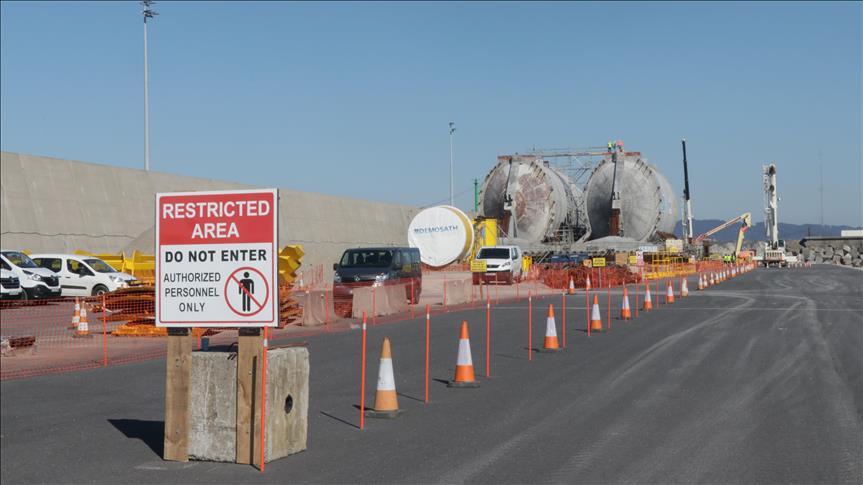Spain's first pilot floating wind turbine is set for installation and operations this year, according to DemoSATH Project Director, Jesus M. Lopez-Tafall Martinez.
Speaking at a briefing during a study visit by officials and business people from Turkiye's wind energy sector, Lopez-Tafall explained that Saitec Offshore Technologies and RWE Renewables joined forces to harness offshore wind energy potential through the DemoSATH project: the testing of the first floating offshore wind turbine prototype with grid connection in Spain.
Construction started at the end of 2020 for the DemoSATH project that will use a 2-megawatt (MW) turbine which will be assembled in the port of Bilbao in northern Spain.
According to Lopez-Tafall, the grid-connected floating wind turbine, with a 64-meter-long base platform and a width of 30 meters, is a first in Spain.
The platform, including the turbine, will be towed to the BiMEP, the open-sea test site in the Basque Country, located 3.2 kilometers offshore at a water depth of 85 meters. Hybrid mooring lines, anchored to the seabed will hold the unit in position.
A 100-man project team from more than 30 companies is developing the project, with almost 75% of the construction budget involving local supply chains within 25 kilometers of the construction site.
The system has been designed to withstand waves of more than 20 meters high at the offshore location where environmental conditions are very harsh, Lopez-Tafall said.
The next step from Saitec Offshore Technologies will be the Energy Research for Offshore Atlantic Project, known as GEROA, which will also be located 16 kilometers off the Basque coast.
The project will deploy up to 50 MW of floating wind turbines and is expected to be the first offshore wind farm in Spain with the main objective of paving the way for upcoming commercial offshore wind development in the region.
Saitec Offshore Technologies is also involved in the launch of the CADEMO floating offshore wind project off the Santa Barbara Country coast in California. The project has the potential to generate up to 60 MW of renewable energy, which will be enough to supply over 21,500 homes when it becomes operational at the latest in 2025.
The study visit of Turkish officials and business people was organized as part of the BEST For Energy (Boosting Effective and Sustainable Transformation for Energy) Project, supported by the European Commission and within the scope of the Competitive Sectors Program of Turkiye's Ministry of Industry and Technology.
Izmir Development Agency (IZKA) along with the Association of Energy Industrialists and Businessmen (ENSİA) in Izmir, Turkiye's wind capital, started the project in the third quarter of last year to promote green energy growth through environmental-focused sustainable economic development goals.
By Ebru Sengul Cevrioglu in Bilbao
Anadolu Agency
energy@aa.com.tr


